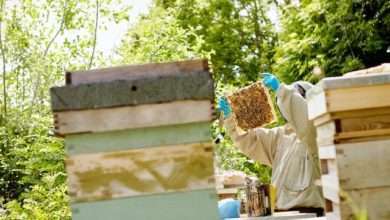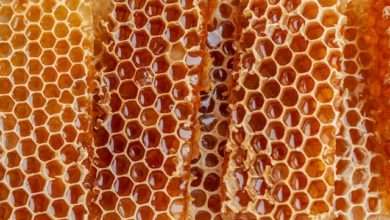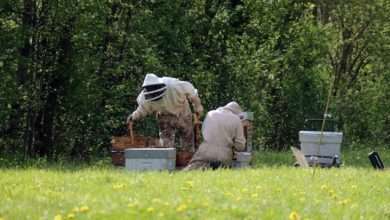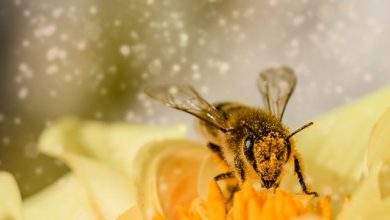Beekeeper Career Outlook
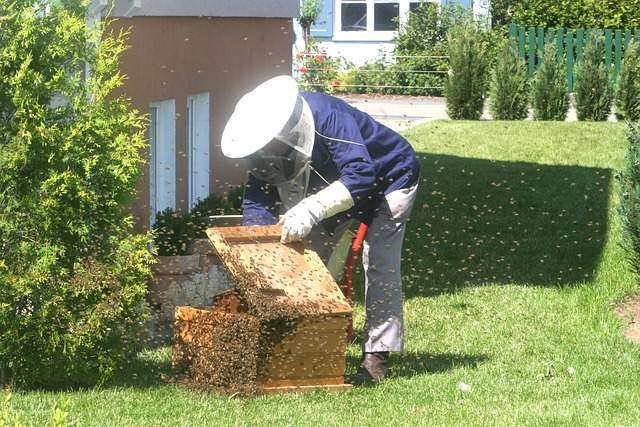
Beekeepers provide a wide range of essential services including maintaining and managing honey bee colonies. The work that they do helps to keep the beehives clean and healthy so that they can produce honey and other byproducts like beeswax.
What does a Beekeeper Do?
When a beekeeper is onsite, they are responsible for performing the following duties:
- Assesses the health of the beehive
- Inspect the hives for mite infestations
- Monitor the health of the hives and treat any health issues that they discover
- Assist in maintaining detail records of the hive’s health status
- Administers medication to the hives when needed
- Assist in the production of honey
Each of these duties are essential for ensuring beehives are proactively cared for on a regular basis. Also, based on the responsibilities of each beekeeper, they may be assigned to one or more of the activities listed below.
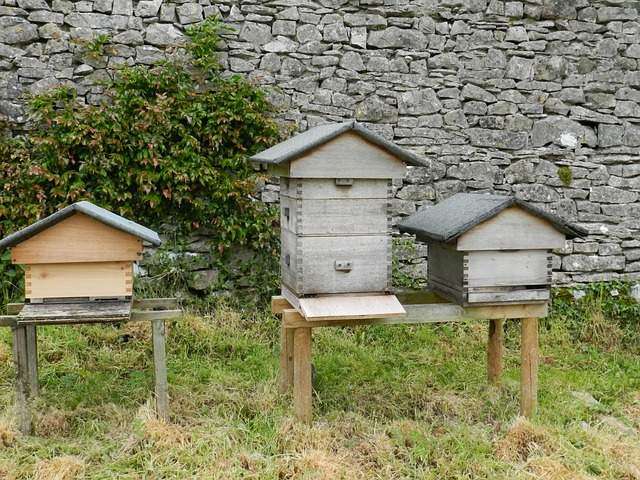
- Preparing the equipment and the bees for pollination
- Feeding the beehives
- Constructing and cleaning the beehives
- Dividing colonies when it is necessary
- Replacing the queen bee and the combs
Due to all of the duties and responsibilities listed above, the beekeeper usually works long hours, particularly during the warmer seasons of the year. The hours that a beekeeper works is not confined to day hours only, but may extend to working during the night. So, a beekeeper can expect to do a lot of overtime hours, including working on holidays and weekends.
Also, to protect their own bodies from the beehive, these professionals are required to wear a special kind of gear before they can perform these duties. Therefore, you may see a beekeeper clothed in beekeeper suits, veils and gloves. To assess the hives safely, you may also see a beekeeper using a bee smokers to ensure that they can approach these beehives safely.
Beekeeper Career Options
The beekeeping career options are quite diverse so they can work in different types of environments across the globe. From working in a small operation as a hobbyist or a large production for commercial purposes, the beekeeper can pick and choose which career options fits their needs and preferences best. The beekeeper may even specialize in a specific area within this industry, including working in one of the following specialties:
- Bee breeding
- Pollination services for vegetables and fruit farmers
- Honey Production
- Elementary schools in 4H programs
- College Level Instructors in Animal Science Programs
- Food and Agriculture Organizations – International Opportunities in Turkey, China, Argentina and the U.S.
Education and Training
To prepare for beekeeping jobs, education and training is provided in a wide range of forms, formal training classes and on the job apprenticing experience. It is also important to note that some of the larger commercial bee farms may offer weekend or evening courses that’s open to the public.
For the novice and seasoned beekeepers, there are also special events across the nation sponsored each year. These events are usually held in the month of January each year by ABF (American Beekeeping Federation). Over 600 beekeeping enthusiasts attend these conferences and trade shows since they feature training sessions and tradeshows with the latest information in the industry.
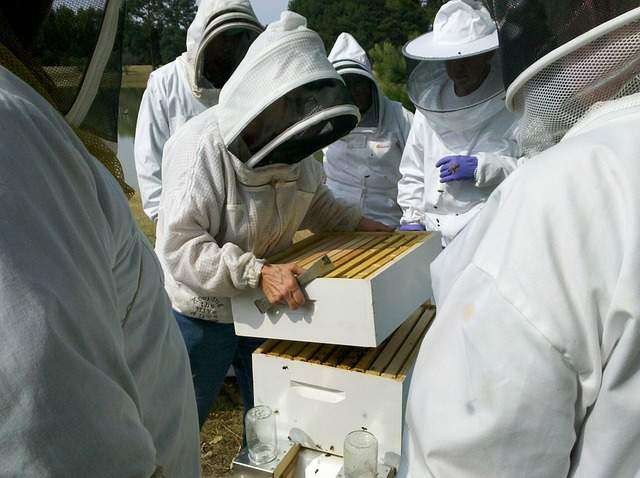
Additionally, even though a degree to work in certain areas of this field is not a requirement, colleges and universities like University of Georgia and Cornell University offer short course seminars and other programs for both novices and professionals. Based on the area of pursuit, students may become apprentices, journeymen or they may achieve master level.
People who work in this area have a variety of different educational backgrounds including the following:
- Undergraduate degree in a biological field or Animal Science
- Masters degree in Agricultural Management
- Ph.D. degree in Entomology
Salary
The salary for Beekeepers usually varies based on employment type, education and experience. Based on information published by the Economic Research Institute, the average pay rate for a Beekeeper in the U.S. is $23 an hour or $48,749 annually.
Beekeeping jobs can found online via sites like:
- Dejobs.org
- LinkedIn.com
- Agcareers.com
- Simplyhired.com
- Ziprecruiter.com
Beekeeper Job Descriptions
The job descriptions on these sites can differ based on the duties and responsibilities required. Therefore, when these jobs are posted online on sites like Agcareers.com, the details of the job description is specific.
For instance, if a large company is looking for a skilled beekeeper, the job description may list responsibilities that include sterilizing and destroying and cultivating queen bees for commercial businesses. And, one of the main requirements is that the person must remain calm under pressure when they are performing any of the related duties.
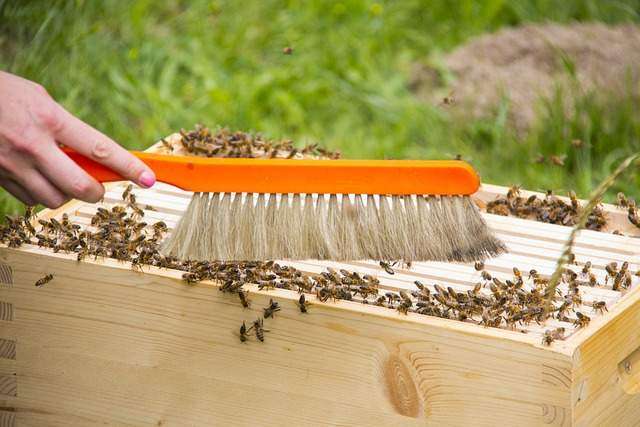
- Assemble the beehives to the right specifications.
- Prepare hives by inducting wild swarms
- To inspect the hives and retrieve the honey, force the bees from the hives with the use of a smoke pot.
- Collect royal jelly and honey from beehives
- Before selling queen bees to other beekeepers cultivate these bees
- Manage local buyers honey sales transactions
- Split Colonies
- To prevent the division of colonies, destroy all excess queen bee cells
- Remove vermin and scrape out parasites
- Kill colonies that have diseased bees
Beekeeper Requirements:
- High school diploma or GED required
- Degree in animal science or zoology is preferred.
- Previous experience as a beekeeper.
- Proficient knowledge of animal and plant biology.
- Ability to work in stressful work environments.
- Woodworking Basic Skills Required
- Ability to work in bad weather conditions
Beekeeper Job Outlook
Over the next decade, the outlook for beekeepers is good. With the rise in demand for more backyard beekeepers, the growth of these operations are expected to expand for a number of different reasons. Some of the most commonly known reasons include continual threats of mites, CCD (colony collapse disorder) and the Africanized bees. Additionally, the increase in demand for more honey and the associated byproducts like beeswax is also expected to remain strong.
